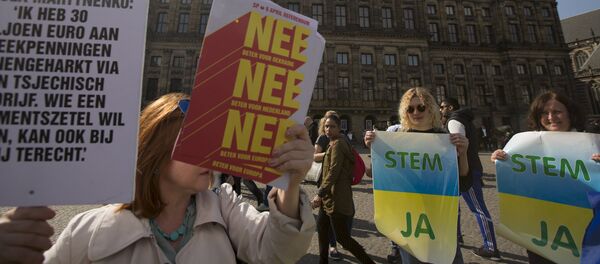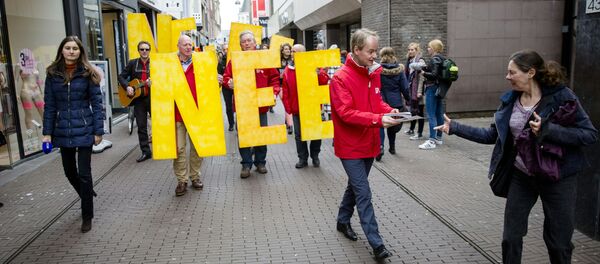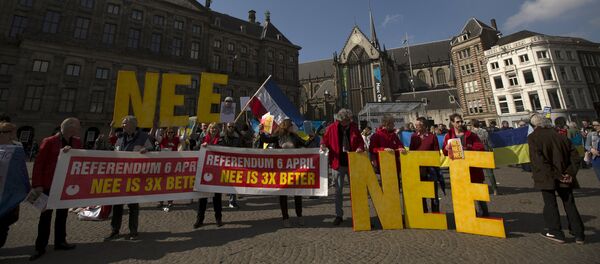According to the expert, the 'disintegration' of the EU project is not at stake, but the referendum served as another sign that the collapse of the political aspect of a united Europe may soon be at hand.
"The European Union is unlikely to fall apart right now. But it seems to me that the end of Europe's political union has arrived, since, as has been demonstrated once again, the mechanism that exists in the EU requiring a consensus in crucial decisions does not work," Rahr said, in an interview for the Rossiyskaya Gazeta newspaper.
The problem, Rahr said, runs very deep. Within the vast EU bureaucracy, in spite of the idea of continental unity, every official continues to advocate his or her narrow national political, economic and geopolitical interests, rather than common 'European' interests.
"Within this huge bureaucratic monster, the national interests of individual states never disappeared. And each commissar or department head continues to consider themselves first of all a Pole, an Estonian or a German, rather than simply a European."
"Therefore, a real European identity was constructed only on paper; in reality it does not exist. And when the EU began to falter, its current leaders proved unable to make any decisions. The institution is like a hen house where the chickens have scattered in all directions, all shouting something. But there is no leader, no main rooster, who would put things in order," the analyst emphasized.
The referendum, he emphasized, was a big blow to both European and Ukrainian elites, including President Poroshenko, "who sought to demonstrate that he is implementing the dream of part of the Ukrainian people and leading the country to the West." As for Brussels, for them "the agreement was necessary for those politicians who used Ukraine for their own careers and put all their energies into the Maidan."
"Now, the Ukrainians have been given a clear message: Europe, which had promised them a great deal, is in no hurry to fulfill its promises. The results of the referendum are a blow not only to the further prospects of Ukraine itself, but to other countries of the Eastern Partnership associated with the EU," ostensibly including Moldova, Belarus, Georgia, Armenia and Azerbaijan.
"Ordinary people feel uncomfortable; they feel that European culture is changing. This is not a right-wing populist slogan, but the sentiment felt in Europe."
In any case, Rahr noted, Brussels, and the EU's major national leaders, will not change their trajectory as a result of the referendum. "The bureaucracy in Brussels who tied their political careers to this association, like Mrs. Merkel, for example, or the French government, cannot simply accept that the game is lost, or that there will be no association. It is possible that some half-measures may be taken, as happens with solutions to other problems in united Europe," including Britain, or Greece.
Ultimately, as far as what happens next for Europe, the political scientist suggested that the supranational bloc may end up reverting to its status as a common economic platform, and move away from united politics.
"I think it's too early to bury the EU, but I think that it will turn more and more to what it has always been – a common market, thanks to which Europe saw the formation of a unique economic and social system, where people, for decades after the Second World War, lived better than they had ever before. But we must acknowledge that the idea of a political union…a United States of Europe with some center, which makes decisions in Brussels or via a mechanism for making decisions by consensus, has failed completely."




